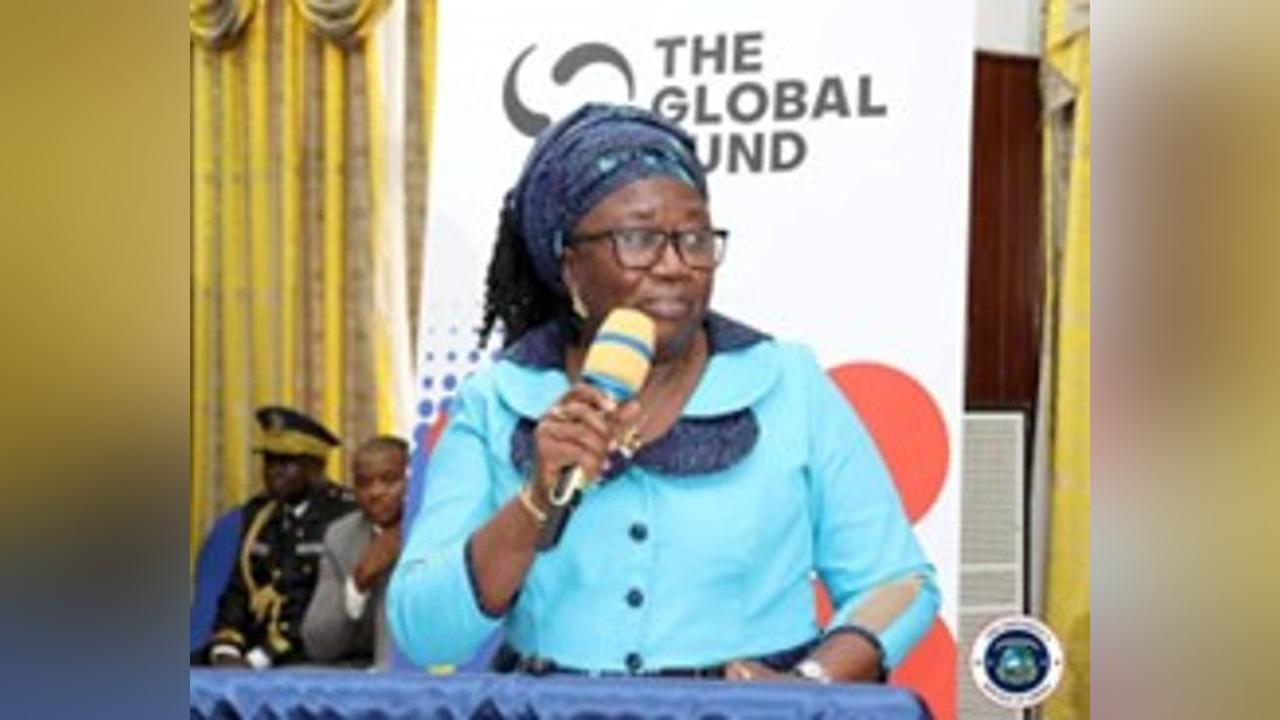Africa-Press – Liberia. The chairperson of the Senate Committee on Health and Grand Cape Mount County Senator, Debah M. Varpilah has begun a robust awareness and sensitization campaign with colleagues in the House of Senate regarding the importance and subsequent passage of the stalled draft Public Health bill currently before the Liberian senate, seeking to address Sexual and Reproductive Health and Rights and others Public issues affecting women, girls and the Liberian health sector.
The critical issue we inherited on this floor is the Public Health bill. Colleague senators, I encourage you to take your time reviewing the new Public Health bill and to consider the benefits, the new authority, and the other guidance it provides to the health sector, which is very important. ‘’ I know when we talk about the bill, the message has been that there is an abortion. But I would like you to take your time and look at the provision that discusses abortion and compare it with the 1976 Law. If you look through the current bill, it is even better on abortion than the 1976 bill. So, colleagues, the committee will be coming to you again after consultation with the immediate past chairperson. I think it is necessary and important that we reintroduce the bill on the floor for possible passage.’ She urged.
The Public Health bill submitted to the Liberian Legislature in 2020 has been stalled primarily due to opposition from religious leaders over clauses related to abortion, same-sex marriage, and euthanasia. Other reasons for the delay include a lack of stakeholder consultation and political complexities.
Religious opposition, in early 2025, the Catholic Bishops Conference of Liberia (CABICOL), the Liberia Council of Churches, and the National Muslim Council all rejected the bill. The religious leaders stated that certain provisions related to reproductive health undermined Liberia’s moral and religious foundations.
The Catholic bishops specifically cited concerns over the legalization of abortion, calling for a firm rejection of the bill. Religious opposition fears that the bill also includes the legalization of same-sex marriage and euthanasia, which they deem detrimental to the sanctity of life and family values.
Inadequate awareness and consultation
According to a March 2024 policy brief by the advocacy group Sister Aid Liberia (SALI), a key finding for the delay was “dismal motivation and limited information” among stakeholders and the public.
SALI reported that the Ministry of Health and its partners did not conduct widespread community sensitization on the bill.
Newly elected senators reportedly lacked understanding of the bill’s content, contributing to the Senate’s reluctance to act.
On Political and procedural issues, the legislative process for the bill has been slow, and it remains before the Liberian Senate as of late 2025.
The House of Representatives passed the bill in 2022, but it has been awaiting action in the Senate ever since.
For a period, the bill’s advancement was downplayed due to national elections and political interference.
The delay has persisted despite pressure from civil society and advocacy groups. In July 2025, an advocacy group launched a “Policy Tracker” to increase public pressure on lawmakers.
In October 2025, Senator Debah M. Varpilah, Chairperson of the Senate’s Health Committee, pledged to work for the bill’s swift passage. Varpilah acknowledged the need for urgent legislative attention to Liberia’s health reform.
Providing progress on the health Committee recently in session, Senator Varpilah rallied her colleagues and did a comparison analysis between the 1976 Public Health bill, which she described as outdated and inaccurate, and the current revised Public Health bill before the Health Committee, while urging and encouraging her colleagues to see the importance of passing the bill.
According to her, they are engaged at different levels. Still, there is a critical request and concern from the public, especially women and girls who have topped the engagement list, regarding the passage of the revised Public Health bill.
She further indicated that the current bill in use is backdated to 1976; therefore, colleagues will agree with her that most of the law’s sections and components, as well as the issues emerging today, were not considered during the crafting of the past bill.
For More News And Analysis About Liberia Follow Africa-Press






